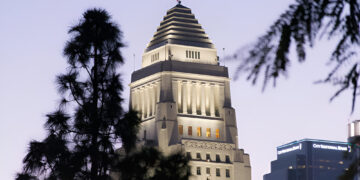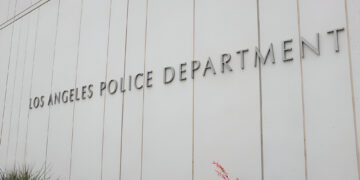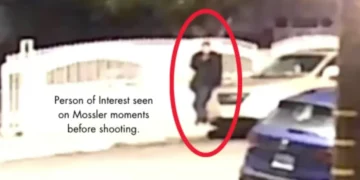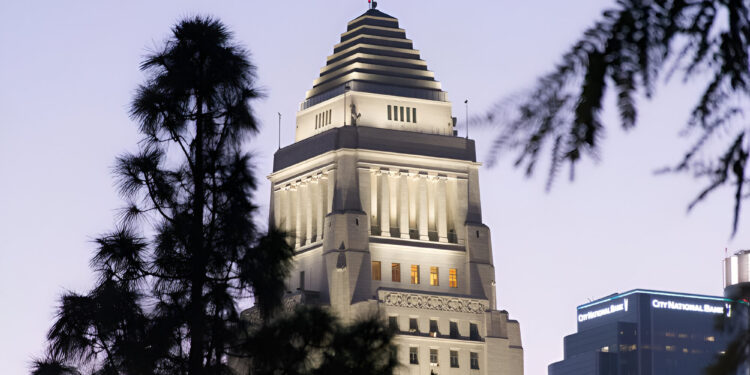LOS ANGELES, CA – With deadly wildfires wreaking havoc across Los Angeles County, displacing thousands of residents, destroying homes, and claiming lives, public scrutiny is zeroing in on Governor Gavin Newsom and Mayor Karen Bass.
Both leaders have become central figures in a growing political blame game, with accusations ranging from mishandling the crisis to outright negligence. Many of these allegations, however, lack factual grounding, serving as distractions from the realities of managing such an unprecedented disaster.
Social media has erupted with harsh criticism, much of it baseless, against Newsom and Bass. A fabricated video making the rounds online portrays the two as modern-day Neros, fiddling while Los Angeles burns. These personal attacks have added to the toxic discourse surrounding the wildfires.
Adding fuel to the fire, President-elect Donald Trump took to his Truth Social platform to pin the crisis on Newsom. “Governor Gavin Newscum refused to sign the water restoration declaration put before him that would have allowed millions of gallons of water, from excess rain and snow melt from the north to flow daily into many parts of California, including the areas that are currently burning in a virtually apocalyptic way,” Trump wrote.
Trump went on to accuse Newsom of prioritizing the preservation of the delta smelt, an endangered fish species, over the needs of California’s residents, claiming, “He didn’t care about the people of California.”
However, these claims have been dismissed by experts. The wildfires have nothing to do with water redistribution policies. The low water pressure firefighters encountered in several affected areas was primarily due to urban water systems being overwhelmed. Designed to handle isolated house fires rather than sprawling wildfires, these systems struggled to meet the simultaneous demand for water.
To complicate matters, as buildings burned, internal plumbing systems failed, spilling water into streets and further lowering pressure. On Monday, the Los Angeles water agency revealed it had shut off 4,200 water connections to burned structures to prevent additional strain on the system. One local reservoir was also offline for routine maintenance at the time, though officials noted this was an unfortunate coincidence rather than a failure of management.
While Newsom’s critics have attempted to capitalize on the disaster, experts say his response has been appropriate. The governor has taken swift action, issuing emergency orders, marshaling state resources, soliciting federal and interstate assistance, and keeping the public informed with fact-based updates.
Mayor Karen Bass, however, has faced more pointed criticism for her timing and priorities. Despite official warnings that Los Angeles was at heightened risk for wildfires due to dry conditions and strong seasonal Santa Ana winds, Bass chose to travel to Ghana for a presidential inauguration as part of a U.S. delegation.
Bass, who promised during her 2022 mayoral campaign to reduce international travel, has drawn fire for leaving the city during a critical period. Though she rushed back to Los Angeles as the fires escalated, the political damage was done.
Her absence was compounded by criticism from Los Angeles Fire Chief Kristin Crowley, who publicly expressed frustration over the lack of resources allocated to firefighting efforts. “If the department had more money, we would’ve been in a better position to battle these fires,” Crowley told a local broadcaster.
Bass has yet to respond directly to the criticism but has taken steps to mitigate the fallout, holding press briefings to update residents on recovery efforts and outlining plans to bolster the city’s emergency preparedness moving forward. Still, political strategists warn that her decision to leave the city during a wildfire crisis will likely be a talking point if she seeks re-election next year.
That said, it’s unclear whether her presence in Los Angeles would have made any tangible difference in combating the fires. The criticism against Bass appears to be more about optics than substance, with her absence providing easy ammunition for her political opponents.
Newsom, on the other hand, has largely avoided substantive criticism for his handling of the wildfires. While the misinformation campaign led by Trump has gained traction among some groups, there is little evidence to suggest the governor bears responsibility for the crisis.
The destructive fires, which have so far consumed thousands of acres, highlight the growing challenges California faces as climate change fuels longer, more intense wildfire seasons. While leadership decisions are under the microscope during disasters, experts stress that such catastrophes often outpace the capabilities of even the most prepared governments.
As the fires continue to rage, discussions about the state’s emergency preparedness, water infrastructure, and climate resilience are expected to take center stage in the coming months. For now, however, the political blame game shows no signs of slowing, as leaders grapple with the dual challenges of managing the crisis and weathering the storm of public opinion.


























